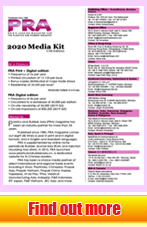Tie-ups: Nova/Enerkem partner to turn waste into ethylene; Dow and Doxa Plast to produce biobased stretch films
Chemical firm Nova Chemicals and biofuel maker Enerkem have entered into an agreement to jointly develop technology for converting non-recyclable and non-compostable municipal waste into ethylene, key feedstock for the production of polyethylene and other plastics.

The two Canadian companies will work together to research advanced recycling technology to transform hard-to-recycle municipal waste, including items such as plastics, household waste, and construction materials, into ethylene at full commercial scale. Ethylene, produced from waste, would advance a plastics circular economy and help meet consumer brand goals for recycled content in packaging.
Advanced recycling technologies are a necessary component of moving to zero plastic waste by creating valuable new feedstocks from post-use plastics that cannot be easily mechanically recycled. The quality of polymers produced with advanced recycling products is indistinguishable from those made from 100% virgin, fossil-based feedstocks.
Enerkem is the first company in the world to produce renewable methanol and ethanol from non-recyclable, non-compostable municipal solid waste at full commercial scale. Its current technologies replace the use of fossil sources like petroleum and natural gas to produce sustainable transportation fuels and chemicals that are used in a broad range of everyday products.
Peter Nieuwenhuizen, Enerkem’s Vice President of Technology Strategy & Deployment, said, “With over 20 years of technology development, we have built a robust gasification platform to turn waste and biomass into fuels and chemicals with high carbon efficiency. Enerkem’s technology has the scale and versatility to supply raw materials for the circular and decarbonized chemical industry that is being created now. Not just for plastics but also for many other chemical ingredients that are vital for everyday life.”
Todd Karran, President/CEO, Nova Chemicals said, “Nova Chemicals is committed to enabling 100% of plastics packaging is recyclable or recoverable by 2030; and 100% of plastics packaging is re-used, recycled or recovered by 2040. This research is one of the ways Nova Chemicals is innovating to recapture the value of plastic products and create a world free of plastic waste.”

In other news, chemical firm Dow and Swedish stretch film manufacturer Doxa Plast are to commercialise a family of bio-based stretch films aimed at addressing the increasing demand for more sustainable solutions.
Reborn, the new range of stretch films by Doxa Plast, integrates Dow’s bio-based linear low-density polyethylene, Elite 5230GC R Enhanced PE resin, which is produced from renewable feedstock. The feedstock comes from residues of paper production from sustainably managed forests in Finland. Unlike other alternative renewable feedstocks, it does not compete with the human food chain, and no extra land is required for its production.
The films are produced in Doxa’s factory in Sweden, which due to the short supply chain also contributes to reducing carbon footprint.
The new bio-based stretch film range is optimised for downgauging without compromising on functionality. Using a patented technology, Doxa Plast offers thin stretch films down to 4 microns of thickness, while maintaining performance for improved load pallet stability and reducing overall packaging material.
Said Sandra-Stina Vesterlund, managing director at Doxa Plast, “Our new Reborn family of sustainable solutions make it possible to reduce, reuse, recycle and redefine plastics without compromising performance and therefore meet our customer’s business and sustainability needs.”
Dow’s bio-based PE portfolio is produced using bio-naphtha from tall oil, which is a byproduct of paper pulp production. This new supply chain from bio-feedstocks enables a significantly lower carbon footprint compared to standard fossil-derived PE resins.
In addition, the PE resins production is certified by ISCC (International Sustainability & Carbon Certification) based on a mass balance approach. This approach helps industries become more sustainable by supporting the sourcing of sustainable ingredients within complex manufacturing or production systems, meaning all steps meet traceability criteria.
(PRA)
Subscribe to Get the Latest Updates from PRA Please click here
©2020 Plastics and Rubber Asia. All rights reserved.

©2020 Plastics and Rubber Asia. All rights reserved.
Home Terms & Conditions Privacy Policy Webmail Site Map About Us



















